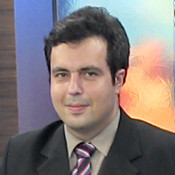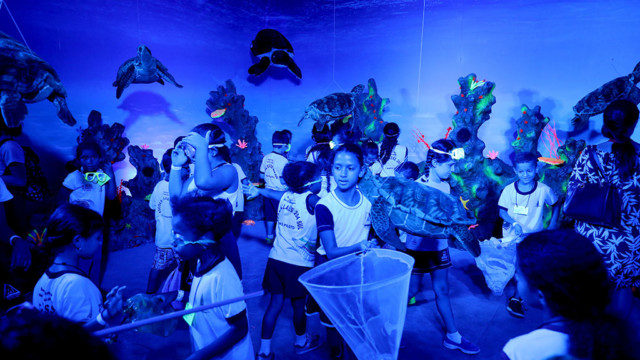Officials from around the globe are gathered in Brazil for the 2018 World Water Forum. It’s the first time the southern Hemisphere has played host. CGTN’s Paulo Cabral has our story from Brasilia.
Rosane Ferreira runs a beauty parlor on the outskirts of Brazil’s capital, Brasilia. For her business, water is essential. But at least once a week her taps dry up due to water rationing in her neighborhood.
“This is a beauty parlor!,” said Ferreira. “How can I work without water? Even for manicuring I need it. Once, I had to go to a neighbor and beg her to give me a bucket of water from her personal stock, so I could serve a customer.”
In addition to rationing, the local government has also tried to increase the water supply, for example, by installing these new pumps and opening a treatment plant to get water from the Paranoa Lake – but it’s far from a permanent solution.
Authorities here in Brasilia had to resort to emergency measures to deal with the worst water crisis in the city’s history. The shortage was caused mainly by a severe lack of rainfall in 2017. But it’s also a reminder of the importance of long-term planning to guarantee a sustainable water supply for the people here.
This water crisis grips Brasilia just as the city hosts the World Water Forum to discuss sustainable use of the resource. “Sharing water” is this year’s theme for the event, opened by Brazil’s President Michel Temer , with the presence of seven other heads of state or government.
“We have just left behind us one of the worst economic recessions in the country’s history,” Brazilian President Michel Temer said. “But we have never accepted the idea of growth at any cost. We are returning to growth, generating more jobs and more income but always with an eye on sustainability, and that of course includes water security.”
More than 45,000 people registered to participate in about 300 sessions taking place here through Friday.
Among the highlights of the first day was the release of this year’s United Nations Water Development Report. In this edition, the report focused on shifting away from a reliance on man-made structures, like dams, and more on ‘natural’ systems that either rely on nature or mimic natural processes to manage and conserve water.
“We could harness the benefits of nature-based solutions to ensure adequate food supplies, to ensure food production, and to provide safe drinking water,” said Audrey Azoulay, the Director-General of UNESCO. “We also need to collaborate more with indigenous communities who often have the intimate knowledge that we have lost of local water systems in harmony with nature.”
In a somewhat ironic twist, city leaders decided to suspend the water rationing that would have impacted those attending the Forum this week. Going without ready access to water, it seems, was determined too extreme a lesson for those dedicated to preserving future supplies.
 CGTN America
CGTN America
 Children help clean the ocean during a simulation at the Citizen Village during the 8th World Water Forum taking place in Brasilia, on March 20, 2018.
The world must race to avert disastrous loss of water supplies, Brazil’s President Michel Temer said during the conference’s opening on Monday, after the UN said some 5.7 billion people may run short of drinking water by 2050.
(AFP PHOTO / Sergio LIMA)
Children help clean the ocean during a simulation at the Citizen Village during the 8th World Water Forum taking place in Brasilia, on March 20, 2018.
The world must race to avert disastrous loss of water supplies, Brazil’s President Michel Temer said during the conference’s opening on Monday, after the UN said some 5.7 billion people may run short of drinking water by 2050.
(AFP PHOTO / Sergio LIMA)
